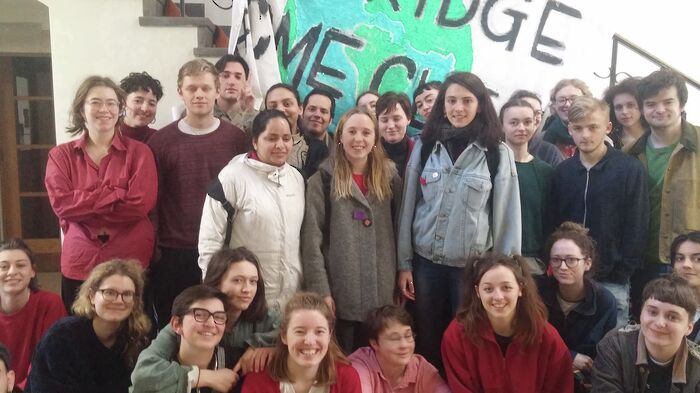Finalist degrees may be delayed by latest strike action
External examiners have been called to resign from their positions, which can cause delays for finalists in their degrees being conferred

The University and Colleges Union (UCU) has called for external examiners to resign from their positions at 65 universities across the country, including the University of Cambridge. This latest move by the union could spell serious disruption to students’ exams during Easter term, as it may affect when students receive Tripos results.
The UCU called on all members who currently hold external examiner positions at universities which are seeing ongoing strike action to resign, and not take up new posts at the affected institutions.
With striking academics returning to work on Monday, this development is likely to disrupt next term’s examination period, and cause questions surrounding delays for finalists in their degrees being conferred.
The UCU also announced on Tuesday that they will begin detailed preparations for an additional 14 days of strike action to take place during examination season, if no agreement has been reached on the future of the Universities Superannuation Scheme.
The University of Cambridge, like most UK universities, appoints examiners from other universities to their examination boards in order to standardise examinations across the country. Cambridge views external examiners as useful in providing an independent and critical view of its examinations, as they avoid potential conflicts of interest.
External examiners act as exam moderators, providing an independent assessment of academic standards by reviewing both question papers and examination scripts. UCU’s Secretary General Sally Hunt hopes that, as “no student or university will want the quality of their degree called into question”, the move will bring university representatives back to the negotiating table.
Speaking to Varsity, Cambridge UCU vice-president Dr. Sam James said that “it would be a matter of considerable further regret” if the two national bodies failed to reach an agreement prior to the disruption of exams in Easter Term, and added “we very much regret the disruption to students’ education which has already been caused by this unnecessary dispute.”
A spokesperson for the University of Cambridge told Varsity that the University’s “strike education task force” will consider the potential impact of mass resignation by external examiners, adding that “the University has long-standing means of mitigating the impact of disruption on the content, conduct, and marking of exams”.
The UCU’s announcement comes days after it withdrew from a pension scheme agreement with Universities UK (UUK), following backlash from multiple UCU branches, including Cambridge. Both UUK and UCU have called for urgent talks, with the aim of reaching an agreement that both provides a guaranteed minimum pension value deemed acceptable by UCU members, and which mitigates the current deficit in the Universities Superannuation Scheme, estimated at £6.1 billion by UUK.
UUK’s initial proposed changes to the pensions scheme, which will come into effect in June if no agreement is reached in UCU negotiations, involves the total replacement of defined benefits pension schemes with defined contribution schemes – a change which UCU says would leave academics £10,000 a year worse off.
The ongoing dispute has seen the largest industrial strike action in the higher education sector hit Cambridge since mid-February and the first student occupation of University buildings in eight years.
Yesterday afternoon, Cambridge vice-chancellor Stephen Toope attended a highly-anticipated open meeting with students, UCU members, and staff to discuss the pensions dispute and the University’s response. When asked about the possibility of strike action during Easter term, Toope said that he “can’t ensure” that students’ exams are not to be disrupted by strikes, though he pledged to do what he could to reach a resolution before any such disruption occurred.
 News / Judge Business School advisor resigns over Epstein and Andrew links18 February 2026
News / Judge Business School advisor resigns over Epstein and Andrew links18 February 2026 News / Gov grants £36m to Cambridge supercomputer17 February 2026
News / Gov grants £36m to Cambridge supercomputer17 February 2026 News / Hundreds of Cambridge academics demand vote on fate of vet course20 February 2026
News / Hundreds of Cambridge academics demand vote on fate of vet course20 February 2026 News / CUCA members attend Reform rally in London20 February 2026
News / CUCA members attend Reform rally in London20 February 2026 News / Union speakers condemn ‘hateful’ Katie Hopkins speech14 February 2026
News / Union speakers condemn ‘hateful’ Katie Hopkins speech14 February 2026











